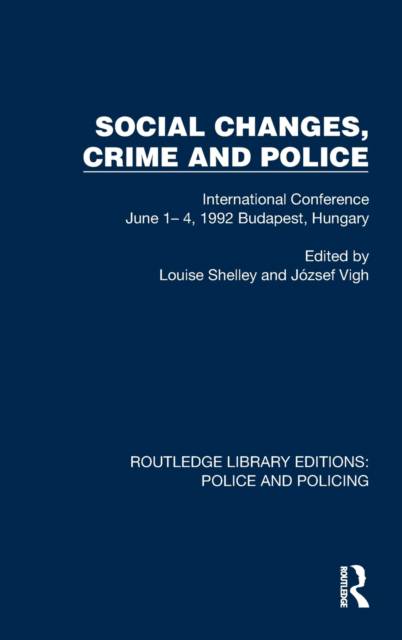
- Retrait gratuit dans votre magasin Club
- 7.000.000 titres dans notre catalogue
- Payer en toute sécurité
- Toujours un magasin près de chez vous
- Retrait gratuit dans votre magasin Club
- 7.000.0000 titres dans notre catalogue
- Payer en toute sécurité
- Toujours un magasin près de chez vous
Social Changes, Crime and Police
International Conference June 1- 4, 1992 Budapest, Hungary
Description
Originally published in 1995, Social Changes, Crime and the Police studies the relationship of social change and crime, the role of the police amidst changing social conditions, and the reaction of society and the state to the criminal problem. It examines the essential differences and challenges which confronted countries in Western and Eastern Europe after the collapse of the socialist system.
In recent years, many areas of Europe had experienced a period of rapid technological development which had changed economic and cultural structures, creating temporary instability. Within a relatively short period of time traditional values and beliefs had been undermined. National boundaries and geographical differences had gradually lost their significance and the opening of frontiers had created easier conditions for crime. The nature of crime itself had been transformed by the increasingly close relationships between countries.
While many Eastern European countries sought to undo the authoritarian legacies of the socialist period, Western Europe faced new challenges to its urban order.
The editors and the contributors also examine the kinds of new policing concepts which may be formulated and the new practices which may develop during the next few decades. Governments must determine the role of the police and the law in accordance with public demands for powerful policing combined with consideration of the individual's rights, thus maintaining the vital balance between personal freedom and social peace.
Spécifications
Parties prenantes
- Editeur:
Contenu
- Nombre de pages :
- 208
- Langue:
- Anglais
- Collection :
Caractéristiques
- EAN:
- 9781032456430
- Date de parution :
- 31-03-23
- Format:
- Livre relié
- Format numérique:
- Genaaid
- Dimensions :
- 156 mm x 234 mm
- Poids :
- 476 g

Les avis
Nous publions uniquement les avis qui respectent les conditions requises. Consultez nos conditions pour les avis.





